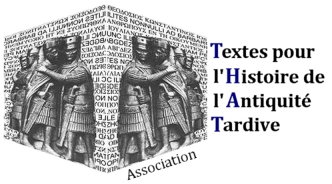Sommaire RET 11 (2021-2022)
NB : Pour lire l’intégralité des articles, voir ci-contre la rubrique Téléchargements.
ARTICLES
1. FRANCESCO LUBIAN
Lex omnis summam Baptistae ad tempora cepit. Giovanni Battista nella poesia latina cristiana (I): Giovenco e Sedulio – p. 1-65.
Abstract: This paper provides a new, complete analysis of the role of John the Baptist in Juvencus’ Euangeliorum libri quattuor and in Sedulius’ Carmen paschale, the two first New Testament epics composed in Latin. While Juvencus, who follows more closely the biblical hypotext, invests the Precursor with an important narrative role, transforming him into a sort of deuteragonist of Jesus in the first part of the Gospel narrative, Sedulius only mentions him in the episode of Christ’s Baptism. Such differences are revealing of the poets’ different approach towards the biblical Vorlage. While Juvencus re-narrates all the main episodes of John’s ‘Gospel within the Gospel’, from the announcement to Zechariah to the prophet’s beheading, taking care of clarifying the hierarchical and theological succession of Baptist and Jesus, Sedulius exploits the testimonium of Joh. 1:29 to catalyse the references to the Precursor, in a more straightforward Christocentric perspective.
2. DONATO DE GIANNI
Clamauit uirtute potens Baptista Iohannes. Riferimenti a Giovanni Battista nella poesia latina cristiana (II) – p. 67-106.
Abstract: This paper focuses on the references to John the Baptist found in some Christian Latin poems. It aims to show in what contexts and for what specific purposes (theological, descriptive and liturgical) certain moments of John’s biography, such as his miraculous birth and the recognition of the Messiah in Elizabeth’s womb, as well as his prophetic mission and the baptism of Jesus in the Jordan, are treated. Aspects of his liturgical worship are also discussed. The passages examined are from works that differ in literary genre and chronology (Augustine’s Psalmus contra partem Donati, Carmen adversus Marcionitas, De nativitate sive passione vel resurrectione Domini, Avitus’ De spiritalis historiae gestis, Arator’s Historia apostolica, the elegy In laudem Sanctae Mariae attributed to Venantius Fortunatus, anonymous hymns and epigraphs). On the literary level, it is often possible to note the dependence of later texts on older ones. Depending on the literary genre, then, the borrowings and allusions to the classical poets are more or less numerous, while the use of neologisms and hapax legomena is sometimes found, such as apertor in the Carmen adversus Marcionitas with regard to John’s role as opener and forerunner of the baptism. In terms of biblical quotations, the most frequently quoted verse is one related to John’s messianic prophecy about the Lamb of God (John 1: 29–30). In spite of the Christocentric perspective of these texts, in any case, the significance of the Baptist in the literary and cultural dynamics of the late antique and early mediaeval Latin West emerges.
3. PASCAL CÉLÉRIER
Le Misopogon ou la Passion de Julien selon Julien – p. 107-125.
Abstract: The Misopogon, Julien’s angry speech against the inhabitants of Antioch who gave him a bad reception in 362, is full of multiple quotations from classical authors, well claimed by Julien. But the analysis of the lexicon of insult and outrage shows that it does not only come from the encomiastic tradition but also from the language and Christian texts of the New Testament. By thus appealing in a veiled way to this tradition which he disapproves of, Julien increases the satirical charge of his remarks against the Antiochians. But he also continues the polemical work initiated at the same period in Against the Galileans against these same texts. Finally, he continues to build a new literary, political and religious project: the heroization of his person by his own works, to compete with Christian writings as sacred texts.
